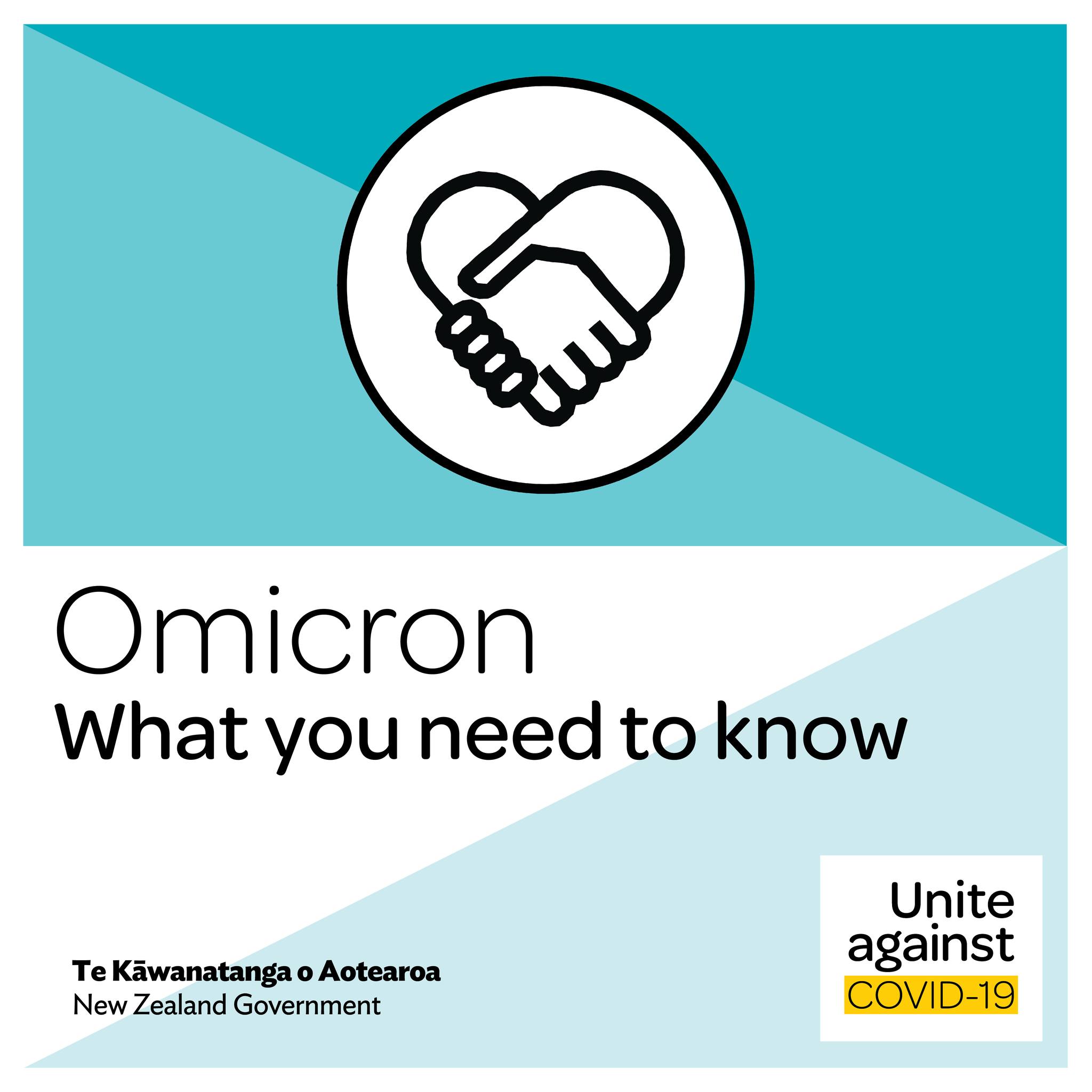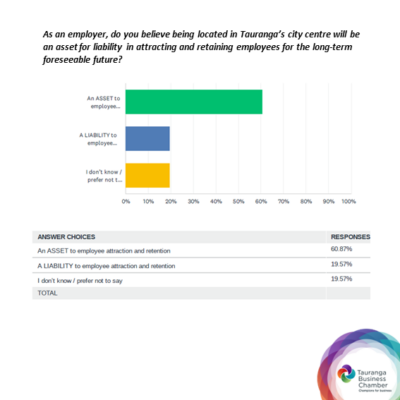Prime Minister Jacinda Ardern has outlined the precautionary measures the Government will take if COVID-19 variant Omicron is in the community.
She confirmed that when we have evidence of Omicron transmitting in the community, the whole country will move into Red within 24 to 48 hours.
Find out what Red means for your business here.
With Omicron already starting to spread in the community, it’s important to be prepared. Business.govt.nz has outlined how below.
Reduce the risk of COVID-19 infections at your business
We all want to reduce the risk of contracting COVID-19, and there are simple steps business owners can do to limit the spread of the virus amongst workers, customers and other visitors.
Understand the COVID-19 Protection Framework and how it affects your business. Follow all the rules, including physical distancing, face coverings, displaying NZ COVID Tracer posters and encouraging people to scan or sign in, and checking and verifying My Vaccine Passes, where required.
Support your employees to get vaccinated, including booster shots. Employment New Zealand has guidance on talking to employees about vaccination. Consider using the vaccination assessment tool to determine whether work at your business should be done by vaccinated people. Some sectors are covered by vaccination mandates.
- COVID-19 vaccination and employment — Employment New Zealand
- Vaccination assessment tool
- Vaccination mandates — COVID-19.govt.nz
Encourage healthy habits in your workplace – including reviewing and updating hygiene, cleaning and ventilation practices, and ensure they are being followed. Advice around good ventilation practices in relation to COVID-19 can be found on the Ministry of Health’s website.
- Keep up healthy habits — COVID-19.govt.nz
- COVID-19: Ventilation — Ministry of Health
Ensure staff stay at home if they are sick. Ask them to call the Healthline number 0800 358 5453 for advice and to arrange to get tested. The COVID-19 Short-Term Absence Payment provides financial support for businesses whose staff can’t work from home while waiting for a test result.
Make sure you and other leaders in your businesses set a good example, by following good hygiene practices and staying at home when you’re sick too.
All businesses have an obligation to protect workers and others impacted by their work from COVID-19 and other risks to their health and safety. WorkSafe has guidance on how to meet these obligations.
Have a plan for COVID-19 cases affecting your business
It is important business owners have a plan for COVID-19, particularly the Omicron variant, impacting your premises and other businesses you deal with, or affecting your workers, such as parents needing to stay home with isolating children.
Part of that plan is knowing what your responsibilities as a business owner are to your staff and the community. The speed at which COVID-19 spreads, the size of an outbreak and impact on the health system, and the Government and experts’ understanding of the virus (or any particular variant) can influence the rules and steps people should take to keep safe. As a result, advice also changes, so it’s important to keep up to date with the latest information.
Plan ahead for ways to continue to operate if workers have to self-isolate or get sick
- Have staff work from home where appropriate – and continue to test systems so working from home is as seamless as possible.
- Consider dual rosters – eg blue team, red team – to limit the number of staff interacting.
- Put together a continuity and contingency plan. These plans won’t just help with COVID-19 – they can support your business during other interruptions, like natural disasters or utility disruptions, such as a water mains failure or a power cut.
- Involve your workers in discussions on how roles, responsibilities and ways of working might need to change, drawing on your collective experiences. Employers and employees, and their representatives, must work together, in good faith, to manage the implications of COVID-19 on working arrangements. Here’s an article on modifying employment agreements during COVID-19 — Employment New Zealand
- Think about ways you can operate with fewer staff if need be – such as reduced hours, a reduced service (such as moving to takeaways or click and collect-style sales), or prioritising what work is most important, and what can be delayed.
- You might want to engage early with temporary workforce providers in case you need to call on them for additional workers.
- Record important processes and knowledge, so other workers can pick tasks up if someone is unable to work. Consider who has responsibility or authorisation for various aspects of your business, such as banking authorities, or authorisation to speak to suppliers or utilities. If that work is unable to occur, what are the implications for your business and its ability to continue to operate as usual? Do you need to assign (and train) back-up staff with the appropriate authority to take over those tasks? The Business Continuity Institute has useful resources to help you prepare.
- Check out your industry body to see if they have developed sector-specific guidance or services.
- Review your finances and understand your cashflow. Engage credit providers, such as your bank, early to discuss ways you might manage cashflow if an outbreak affects your business.
- Understand your responsibilities as an employer, including employment law and health and safety law.
- COVID-19 and the workplace — Employment New Zealand
- COVID-19: Managing health and safety — WorkSafe

Consider other businesses you deal with, and how they might be affected by COVID-19 cases
If your business relies on other businesses’ products or services, consider talking to them about their continuity and contingency plans. How they plan to respond could affect your own plans.
For example, you could ask your suppliers:
- How do they plan to deal with staff absences?
- How will they maintain the supply of services or goods to you if they are under-staffed?
- Should you allow longer lead times for orders, or order more frequently?
- If you have a particular staff member from a supplier who your business relies on heavily, who is the back-up point of contact?
- If your supplier has limited capacity, will you be one of the customers who they continue to supply?
Think about who you rely on to operate your business and consider what steps you can take with that supplier to maintain necessary services or goods, should they be impacted by COVID-19.
If you provide services or products to other businesses, you might want to contact your customers and share your plans. Understanding their plans could also help you anticipate changes in demand, timeframes or how you could tailor the ways you provide your services and products to match any new ways that they work.
Have a plan for communicating with workers and customers
- Think about how you will communicate with staff – are staff contact details up to date?
- Make sure they know where to find the most up to date health advice, and consider ways to support them, such as a regular phone call and offers of assistance. Do any of your staff have particular needs eg, health conditions or dependents that will require different support?If you test positive for COVID-19 — COVID-19.govt.nz
- How are you going to inform customers, providers or clients about any contact with a COVID-19 case they might need to be aware of, or if you have to change your operations due to the availability of workers? Up to date databases are important and social media or email newsletters may also be useful tools.
- In all cases, consider how you protect people’s privacy. Names and medical information must not be shared.
Resources:
- An introduction to business continuity — The Business Continuity Institute
- Find a Civil Defence guide to creating a business continuity plan and download a template at Wellington
- Regional Emergency Management WREMO: Business Continuity Plan — Wellington Regional Emergency Management
Follow public health advice if you, your workers or someone else who visits your premise has COVID-19
We know COVID-19, and its impact, can change rapidly. When Omicron makes its way into New Zealand communities, the public health guidance may evolve to reflect this changing landscape. As a business owner, it is important you are up to date with the latest advice from the Ministry of Health.
Self-isolation requirements for people with COVID-19 and their close contacts
The Ministry of Health will have the latest advice on self-isolation requirements.
- Advice for people with COVID-19 — Ministry of Health
- Types of contacts — Ministry of Health
Financial support
The COVID-19 Short-Term Absence Payment is available for businesses, including self-employed people, to help pay their employees who cannot work from home while they wait for a COVID-19 test result.
The COVID-19 Leave Support Scheme is available to employers, including self-employed people, to help pay their employees who have been advised to self-isolate because of COVID-19 and can’t work at home during that period.
COVID-19 financial support for employers — Work and Income
Contact tracing in workplaces
The Ministry of Health has guidance for what to do if your workplace has a case of COVID-19, including information on contract tracing and communicating with employees and customers.
- Guidance for workplaces that have a case of COVID-19 — Ministry of Health.
Cleaning and disinfecting
You’ll find advice on cleaning and disinfecting during COVID-19 on the Ministry of Health’s website.
- COVID-19: General cleaning and disinfection advice — Ministry of Health
Look after yourself and your mental health
It can be stressful managing the impacts of COVID-19 on your business. You may need some advice, or simply someone to talk to – help is available.
Want more top tips, advice and insights? Check out our news section.
















































